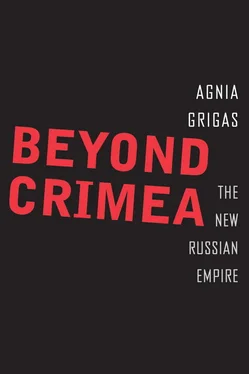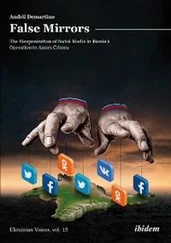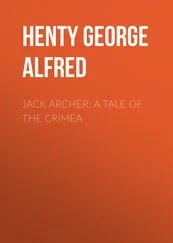This shift has several consequences. On one hand, it marks an effort to conceptualize compatriots as active rather than passive members of the Russian World. On the other hand, the conditionality of activism likely narrows the ranks of compatriots. As political scientist Oxana Shevel outlines, the 2010 amendment once again enables Moscow to define all former Soviet citizens as compatriots, but does not legally require Moscow to do so. 116Furthermore, the concept of self-identification reduced the scope of the paradoxical situation created in 1999 where some 150 million former Soviet citizens could be considered compatriots under the law, including (in the wording of the amendment) “residents of Finland and Poland because these countries at some point were within the territory of the Russian state, and Mikheil Saakashvili and elites of the Baltic States because they are from the former USSR.” 117Certainly, Georgia’s President Mikheil Saakashvili who had just fought a war against Russia could not be counted among Russian compatriots though he had previously held Soviet citizenship. On the other hand, Georgia’s South Ossetians and Abkhazians could still be included presumably because they had historically resided in the Russian Empire and because many had acquired Russian citizenship. 118
At the same time, various initiatives to support compatriots continued. In the spring of 2011, Medvedev established a Foundation for Supporting and Protecting the Rights of Compatriots Living Abroad, which aims “to provide Russians abroad with the necessary support to protect their lawful rights and interests in their countries of residence.” 119Also that year the Ministry of Foreign Affairs launched a website, ruvek.ru—a self-described portal for Russian compatriots—to assist their voluntary resettlement to Russia. 120
A momentous shift in Russian foreign policy vis-à-vis compatriots occurred after Putin returned to the presidency. In May 2012, he signed a decree “On Measures for Implementation of the Foreign Policy of the Russian Federation.” This document had one strategic difference from “Russia’s National Security Strategy to 2020” of 2009 and the earlier “Russian Foreign Policy Concept” and the “National Security Concept,” both of 2000 that presaged changes in compatriot policy: for the first time, it explicitly set out to protect Russian compatriots in addition to Russian citizens. It instructed the Ministry of Foreign Affairs of Russia and other executive agencies “to ensure the full protection of the rights, freedoms and legitimate interests of Russian citizens and compatriots living abroad.” 121Thus the document called for an increase in budget financing for relevant projects, to be implemented through the Foundation for Supporting and Protecting the Rights of Compatriots Living Abroad and the older Government Commission for the Affairs of Compatriots Living Abroad established in 1994. 122This commission, chaired by Russian Minister of Foreign Affairs Sergey Lavrov, aimed to coordinate the work of Russian federal and regional executive bodies in pursuing and implementing state policy toward “Russians residing abroad”—terminology that again seems to equate Russian compatriots and Russians in general. 123In the same year, during the Fourth World Congress of Compatriots, Putin stated that documents regarding Russian compatriot policy were no longer vague, as “support for the Russian diaspora is one of the most important policies of our state.” 124
In February 2013 the Russian Ministry of Foreign Affairs published a new “Concept of the Foreign Policy of the Russian Federation,” which further reiterated the notion of protecting both Russian citizens and compatriots. Among its goals, the concept aimed to ensure “comprehensive protection of rights and legitimate interests of Russian citizens and compatriots residing abroad” through the mechanisms of international law and treaties. It also supported “consolidation of organizations of compatriots to enable them to effectively uphold their rights in the countries of residence while preserving the cultural and ethnic identity of the Russian diaspora and its ties with the historical homeland.” 125As the next chapter will show, this concept of equating compatriots and citizens was demonstrated in 2014 in Crimea and eastern Ukraine, although Moscow’s policies of protection there did not employ international laws and treaties but rather opted for annexation and military means.
Shortly after the annexation of Crimea in March 2014 and at the start of conflict in eastern Ukraine in the beginning of April 2014, the Duma approved a bill to simplify the procedure for Russian-speaking foreigners to obtain Russian citizenship. The need to develop simplified procedures for granting citizenship was already clearly expressed at the end of 2012 by Putin when he stated in a public address that “Russia needs new blood,” 126and that the process of obtaining citizenship was too complicated. Amendments to Article 14 of the “Federal Law on Citizenship in the Russian Federation” specified that the new procedure for obtaining Russian citizenship could be used by foreign citizens and stateless persons recognized as native Russian speakers, for example, speaking fluent Russian and regularly using it at home, in social, cultural, and other spheres, and whose lineal ancestors permanently lived on territories of the Russian Empire or the USSR, on the condition that they renounce their present foreign citizenship. Also, according to the amendment, a native Russian speaker would be determined via an interview with a special commission. 127The condition that new Russian citizens renounce their foreign passports marks a departure from Russia’s previous policy of seeking to spread dual citizenship across the post-Soviet states. It can be interpreted as a means to demarcate more clearly the allegiances of compatriots. Leaving no ambiguity about their citizenship would be more favorable to Russia’s efforts at protecting them and possibly seeking to acquire territories where they reside.
In many ways the development of Russian compatriot policies follows the arc of Russia’s power, ambition, and struggle for national identity. In the two decades between 1994 and 2015, the Russian government promulgated more than twenty policies, programs, and laws to both conceptualize and assist compatriots. These were an ever-present dilemma and opportunity for Moscow; however, the manner in which Moscow chose to engage or at times ignore the 30 million Russians and Russian speakers varied over these two decades. In the early 1990s, as Russia grappled with severe economic decline and new statehood, the compatriot issue remained vague and ill defined. Early on Moscow decided that the diaspora would not be invited to return to Russia and stipulations were made to block mass repatriation. Only fifteen years later, some half-hearted attempts at resettlement followed. Nonetheless, even in the Yeltsin era there were efforts to link issues of foreign policy and compatriots as in the cases of the Baltic States and the failed efforts to introduce dual citizenship across the post-Soviet states.
Since the 2000s under Putin’s leadership, as the Russian economy and stature on the world stage grew along with rising oil prices, the compatriot issue increasingly came into focus. Russia redefined itself as a great power on the world stage and a leader of a Slavic, Russian-speaking, Orthodox Christian civilization—in other words, of the Russian World. Russians, Russian speakers, and other minorities in the near abroad were the crucial part of this world and were politicized and conceptualized as compatriots. Many early compatriot policies appeared like confused and heavy-handed attempts to use soft power. Under Putin, the compatriots were increasingly conceptualized as a resource for Russian foreign policy and geopolitical ambition in the near abroad. After the Georgian war of 2008 over compatriots, Russian policies became more clear and focused on protecting citizens and compatriots abroad.
Читать дальше












